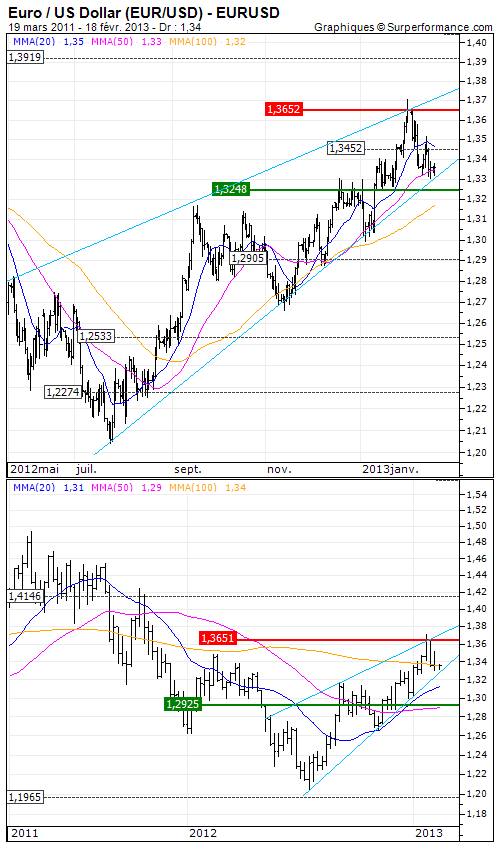Euro / US Dollar (EUR/USD) : Green light from G20 to accomodating policies
By Mathieu Burbau
At the end of the meeting of finance ministers and central banks governors of the G20 in Moscow, members of the group committed, in the wake of the G7, not to encourage the depreciation of their currency. Declines in the dollar and the Yen are not, at least officially, objectionable as long as they are considered the effect of monetary policy aiming to support growth and not as competitive devaluations, although this distinction remains difficult to identify.
While the European economy appears to be the first victim of these monetary actions, Mario Draghi himself thinks that the words about a potential currency war are “inappropriate or unnecessary”, suggesting that the ECB won’t say anything if the fluctuations of the euro are not sudden or unidirectional.
From a strictly monetary viewpoint, the strength of the single currency seems to has many days ahead of it, but upward movements could however been weakened by a particularly unfavorable macroeconomics. According to first estimates, the Eurozone sinks into recession after the publication of a contraction by 0.6% of the GDP for the fourth trimester of 2012. The German economy was also slowed down by 0.6% while the growth rate in France is -0.3%.
Graphically, in daily data, the Euro in an upward trend is coming back to the 50-day moving average and could thus bounce on it, even without test our USD 1.3248 support. We are now buyers at the current price, with a limit order at USD 1.3250 in last resort, to target a first objective at USD 1.3452.




